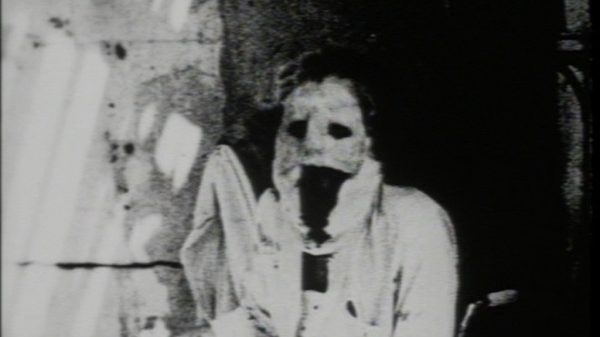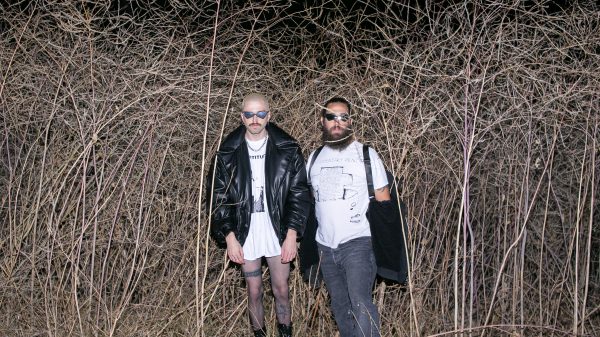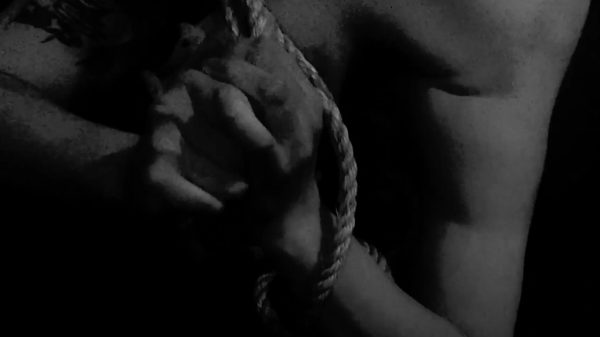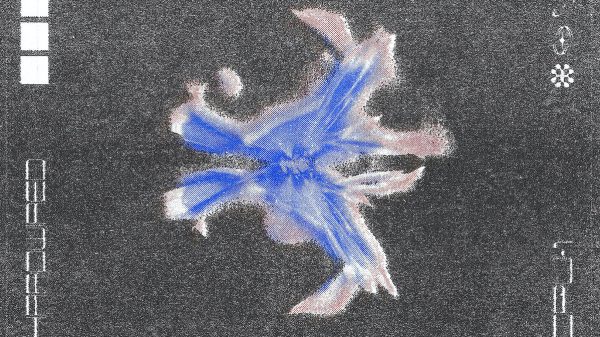Pact Infernal. This mysterious dark entity has been slithering through the experimental side of electronic music, projecting its dim vision with a well of inspiration. The act retains a degree of anonymity, but they were willing to allow a few questions regarding their existence and their journey through the Circles of Inferno in The Descent EPs. This could not have come at a better time, as the band is about to release its debut album, Infernality, extending their grasp on the immaterial. Jungian archetypes, mysticism and dark ambient merge, while the act details its philosophy, creative process and future plans.
Hi guys! Firstly, thanks for finding the time to do this interview, it is much appreciated. So, can you tell us how Pact Infernal came to be? Where and when did the project start?
The idea for the project was received as a gift from the Collective Unconscious. In its infancy, it was to be nine short films themed around death and the correlating circles of hell as depicted by Dante in his poem Inferno, each with an individual score to be released alongside as an LP. The idea came in 2012 and work on the musical accompaniment commenced immediately. Originally the project was named Death Lab, but as it was fleshed out and evolved it no longer seemed fitting and Pact Infernal was inaugurated shortly before the release of The Descent Chapter I.
In the past you have kept a low profile, building a mystique around the project. How important is it for you to retain such an aura in an age where everything is out in the open (through media, Internet, social network etc.)? Is it an easy task?
Maintaining anonymity is somewhat of an initiation into the Laveyan concept of ‘The Importance of Keeping a Secret.’ Any aura of mystique is a by-product and not the primary intention. It’s not an easy task now that the project has evolved into the arena of public performance, but ease is not an aspect of many initiations.
Up until now you have not been performing live, but as far as I know that is about to change. What signaled this change? And given your distinct sound, and the esoteric quality of your music, what should we expect from your live performances?
Change is a vital element to the project. Stasis opens the gates to sloth & lethargy. Refinement and deviation lead to progression and evolution. Playing the music in a live setting became the next step down the path. We have few expectations ourselves for performances and would urge others to have the same.
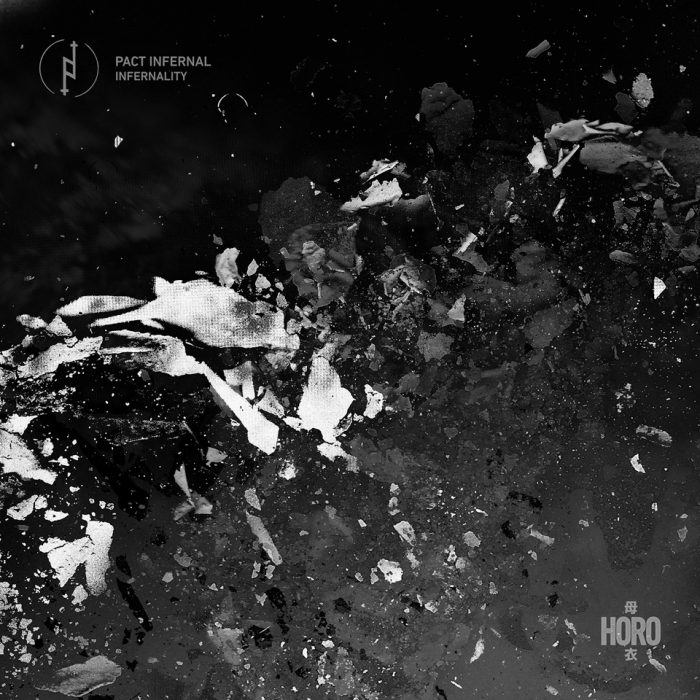
You are now releasing your first full-length record, following the two The Descent EPs. What can you tell us about the evolution of your sound? What new ground does Infernality cover?
Musically, Infernality is a continuation (albeit perhaps a refinement) of what began with The Descent EPs, a mixture of ritual ambience, indigenous rhythm and elements of industrial noise. These ideas are arguably more isolated on Infernality with the album format allowing us to ruminate more attentively on particular elements and themes. It would be reasonable to say that the new ground covered on Infernality is more thematic than musical. When we come to write new material we have little idea of what the results will be. The initial start of the writing process is often more akin to channeling unconscious ideas than building from conscious ones, with form manifesting from the void with little cognitive intervention. Once a framework has come together, our intentions are applied in order to shape the final results to meet our will.
The Descent EPs were inspired by Dante’s Inferno and the nine circles of hell. How has Dante’s concepts affected your music? What is the allure to these ideas?
The idea of exploration was the allure. To borrow (and paraphrase) from Setian Ipsissimus Don Webb; “There are two types of people, those who will huddle around a campfire for security and those who will take a torch and go out to explore in the darkness of the woods.” The nine circles offered a compelling and captivating setting for the type of exploration we were interested in doing; embracing areas of life often avoided in order to extract the knowledge concealed there. To take our own metaphorical torches and explore the unilluminated for ourselves. The musical concepts inspired by the imagery of Dante’s journey have continued to run through our work.
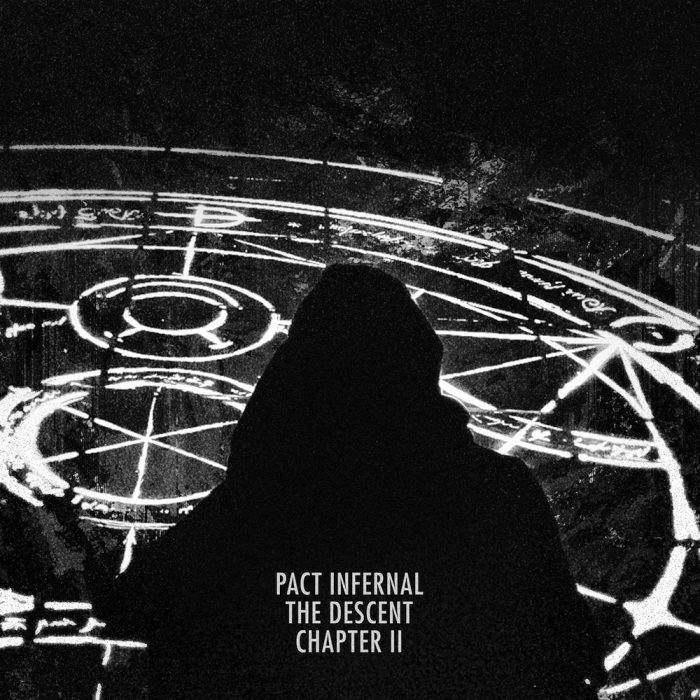
Your work in Infernality is also filled with aspects of religious, mystical and spiritual practices. Moving away from Dante’s Inferno, what is the area that you are investigating with the new album?
Where The Descent was concerned with exploration of the external or objective world, Infernality is engaging the exploration of the internal or subjective world, exploring the dark recesses of the individual mind and soul. For clarification and context, when we speak of darkness we speak without negative connotation. In current times, darkness is often translated to mean cruelty. What we mean by darkness is more analogous with the Jungian concept of The Shadow. To quote from Joseph Lewis Henderson: “The shadow cast by the conscious mind of the individual contains the hidden, repressed or nefarious aspects of the personality. But this darkness is not just the simple converse of the conscious ego. Just as the ego contains unfavourable and destructive attitudes, so the shadow has good qualities – normal instincts and creative impulses.” The dark and shadow areas of the psyche contain many fundamental fragments of the true self. There is much to be gained from them for those willing to venture.
Given that you are using a lot of tribal influences, coming through the percussion mainly, but also cinematic elements with sound design and samples, I am interested to know what your creative process is. Where do you start working on the tracks? Does the beat come first, or is it the abstract settings that everything else is built around?
We keep the process as boundless as we can, starting work with little intention over end results. A lot of time is spent between sessions preparing and recording new source material so that when we convene we can get straight into arrangement, rather than recording as part of the same session. Sometimes something will arise during recording that we know we will want to use as a frame for the arrangement, whether it’s an element of percussion, drone, noise or spoken word differs on each track.
While having an experimental electronic sound, the end result appears very nicely balanced and organic. How do you approach the production of your music, and the mixing, mastering process? Do you keep everything in the box, go the analog route, or is it a hybrid state?
We have two studios, one is analogue-based, and this is where the bulk of recording source material is done and also the final treatments and mixing. The second studio is computer based and here is where we do the composition and arrangement. Having this separation has given us flow with the writing process. Infernality was written in less than 3 weeks, but the recording and processing of source material and the collecting, processing and organizing of samples was done at a more leisurely pace over the space of a year between other projects.
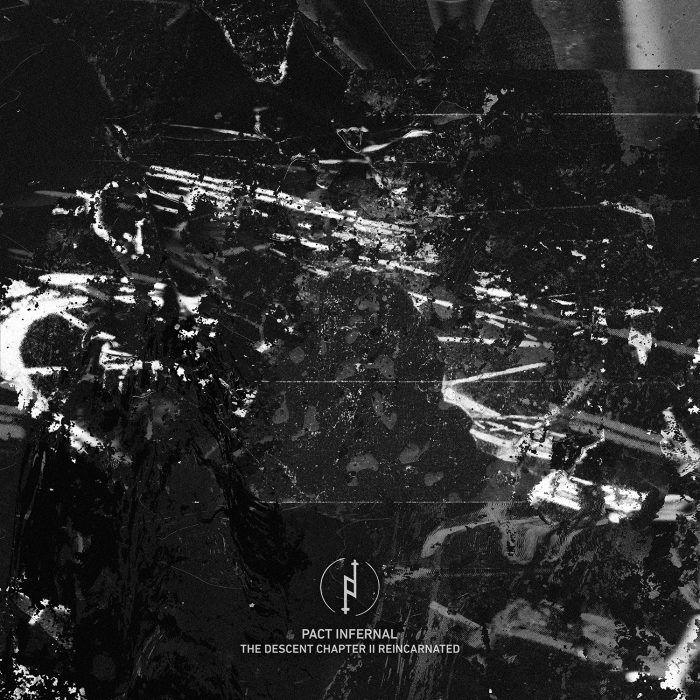
In the past Lucy remixed your music, and soon Svreca, Pris, Nastika and Ancestral Voices will give the remix treatment to tracks from The Descent Chapter II. What is the experience of listening to these re-interpretations of your music?
Thankfully, it’s been a great experience so far and we’ve enjoyed everyone’s work on them. There’s an innate foreboding when waiting to hear other’s re-interpretations of your work, so it’s been a relief to have had great remix work done so far. We hold sincere gratitude to the artists involved.
I know it is fairly early to ask, given the record is not even out yet, but are you working on new music? Anything more that we should be expecting from you?
The last months have mostly been working on the live show, but we have begun working on new music as well. There will be more information on that later in the year. Between the numerous other projects that we have between us, Pact Infernal has become one of the more intensely focused on, so there will no doubt be more new music before too long.







